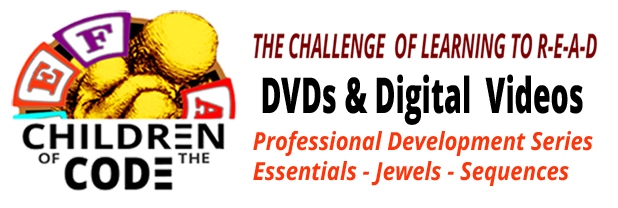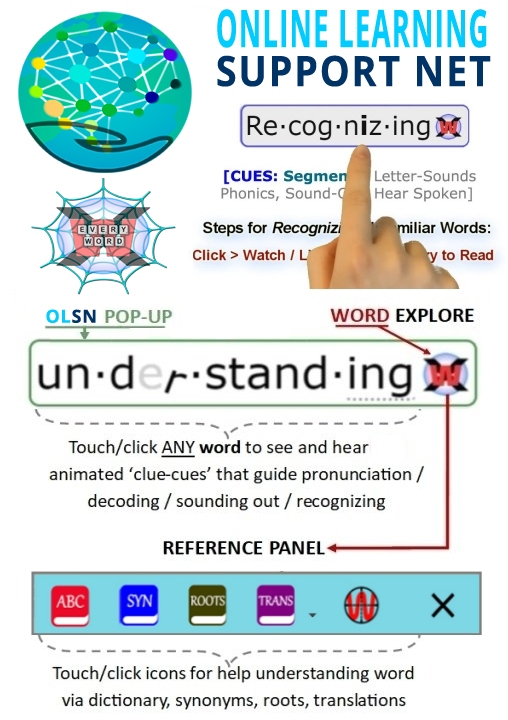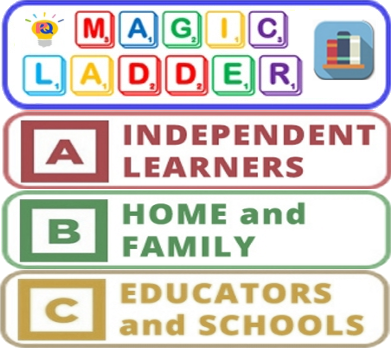The First Millennium Bug
Note: Remember to click on any word on this page to experience the next evolutionary step in technology supported reading.

Watch First Millennium Bug Videos
NOTE: THE CHILDREN OF THE CODE PROJECT IS NOT ADVOCATING ALPHABET OR SPELLING REFORM. WE SHARE THESE PIECES AS EXHIBITS TO AID IN THINKING ABOUT THE RELATIONSHIP BETWEEN THE CODE AND READING RELATED PROBLEMS. Just click on any word to learn about what we think should be done to reduce the confusion.
Why call it the “First Millennium Bug”?
Remember the Y2K bug problem – the so called (2nd) Millennium Bug?

A quick refresh from book titles in the late 90s: The Millennium Bug: How to Survive the Coming Chaos, Time Bomb 2000, and The Computer Time Bomb: How to Keep the Century Date Change From Killing Your Organization. And from other sources:
In 1998 the chief economist of Deutsche Bank Securities Ed Yardeni projected a 70% chance that the Y2K bug will cause a severe global recession.
“The year 2000 problem is the electronic equivalent of El Niño,…this is going to have implications in the world … that we can’t even comprehend.” U.S. Deputy Defense Secretary John J. Hamre.
“The writing is on the wall: it is not only possible, but probable that there are going to be food shortages,” Geri Guidetti biologist and moderator of an Internet forum on Y2K and agriculture.
Jason Matusow, Microsoft’s Year 2000 Solutions program manager said only 5% of the world’s computer codes contain dates, though that small number affects 85% to 95% of all other codes.
In the late 90s, the computer infrastructure of the world, and the human beings dependant on it, came to the brink of chaos. A congressional commission was established. For years it was an international news story. Do you remember what caused it all? The Y2K bug resulted from the shortsightedness of a few programmers in the 1970s. Concerned with minimizing the use of the computer’s then precious memory, these programmers used only two places (19xx) to ‘encode’ the calendar year for dates. They simply didn’t think beyond the year 1999. That one lapse in contingency thinking, on the part of so small a number of programmers, became part of a tiny piece of ‘code’ that in turn was taken for granted by thousands of other programmers and billions of other lines of code. These programmers were among the best in the world.
Remember the Y1K bug problem?
Not many do. It’s very much the same story except that rather than being about a small piece of code in our computer operating systems it’s about a small piece of code in the operating systems of our minds. It’s about the root code of the English writing system. The code we use to write (encode) the English language.
Even more than the date code of the Y2K bug, the writing code of English underlies just about everything in our modern world. Like the Y2K bug, we are talking about a small piece of code. Much more widespread than the Y2K bug, the code we are talking about has been taken for granted by hundreds of millions of people and trillions of lines of text.
If we were to start today to develop such a code, we would consider it on a scale of importance rivaling or exceeding the Human Genome project. We would have the best programmers, cognitive scientists and linguists, learning theorists, psychologists and representatives of other disciplines involved. After all it’s a piece of code that affects the minds of everyone who uses the English language.
However, in the days when this code was developing there weren’t any programmers, cognitive scientists or psychologists to help in designing it. Our code, the code of English, has its roots in the invention of the alphabet by Middle Eastern scribes some 3500 years ago. It was later upgraded by the Greeks to represent their very different language and subsequently spread throughout Europe by the Romans. It became the roots of our code, the English code, during the first millennium as the written language of the Romans began being used to represent the English spoken language. The problem, the origin of what we are calling The First Millennium Bug, is that the English spoken language used over 40 distinct sounds but the Latin written language had only 24 letters (later 26). Unlike the modern 70’s code programmers who at least understood the nature of codes, it was a 15th century king and his small band of Latin biased scribes, and some years later, the printing press technicians, who created this bug. Like the Y2K bug, the Y1K bug was the result of the shortsightedness of the people involved. At the time that the two language systems were con-fusing the ‘people of power’ were more concerned with the integrity of Latin (the elite written language of Europe) then with the future generations of English language users. Unlike the Greeks who added letters to the alphabet to adapt its fit for their sound system, the English scribes, again, more concerned with preserving the alphabet’s use for Latin than in adapting it for English, used convoluted letter sound patterns to stand for the sounds that didn’t have letters. Absent enough letters to phonetically spell the sounds of English, the scribes borrowed many of the morpheme level letter-sound spelling patterns of Latin, French, and Greek to spell their respective imported words. The result:
“inconsistencies, absurdities, facts contrary to the etymology of a word… it’s a mess” – Dr. Thomas Cable, Co-Author: A History of the English Language
Over the centuries as ‘phonics’ developed as an attempt to ‘patch’ the 26 letters to the 40 plus sounds, very few people thought to concern themselves with how the underlying code would effect the minds of the people that would have to learn it. Today, we tend to look at reading problems as if they reflect something wrong with the ‘user’ rather than the ‘code’.
(See: Foundation literacy acquisition in European orthographies for recent work on the relationship between ‘orthographic depth’ and reading difficulties)
Today, as the Children of the Code project is revealing, hundreds of billions of dollars, and millions of lives are suffering the effects of the First Millennium bug. In this part of our work, we will tell the story of the First Millennium bug and the efforts over the past few hundred years to remedy it. (see: Franklin, Webster, Dewey, Spelling Reform, Roosevelt, Carnegie, Twain…. more coming)
Noah Webster, father of Webster’s dictionaries, was one of the earliest to understand the issue and develop a plan to rectify it. From his words, over 200 years ago, we can glimpse how important he thought it to be:
“Letters, the most useful invention that ever blessed mankind, lose a part of their value by no longer being the representatives of the sounds originally annexed to them. The effect is to destroy the benefits of the alphabet.”
“Delay in the plan here proposed may be fatal … the minds of men may again sink into indolence; a national acquiescence in error will follow, and posterity be doomed to struggle with difficulties which time and accident will perpetually multiply.”
Sounds like what people were saying about the Y2K bug in 98…













